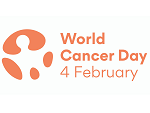Our story and the progress
By raising worldwide awareness, improving education and catalysing personal, collective and government action, we’re working together to reimagine a world where millions of preventable cancer deaths are saved and access to life-saving cancer treatment and care is equal for all – no matter who you are or where you live.
World Cancer Day was born on the 4 February 2000 at the World Summit Against Cancer for the New Millennium in Paris. The Paris Charter aims to promote research, prevent cancer, improve patient services, raise awareness and mobilise the global community to make progress against cancer, and includes the adoption of World Cancer Day.
It began with six cancer experts who convened in Paris in 1999. With the year 2000 imminent, the group was determined that the global challenge of cancer would not be forgotten in the new century. Together, the six leaders – Drs David Kayat, Peter Harper, James F. Holland, Gabriel N. Horobagyi, Lawrence H. Einhorn and Sandra Swain – drafted a Charter that outlined a vision for addressing the impact of cancer on “human life, human suffering and on the productivity of nations”.
The Charter highlights the need for access to quality care, funding for cancer research, greater understanding and above all respect and dignity for all individuals living with the disease.
The final article set out the idea for an international awareness day:
„Recognising the declaration by all appropriate institutions that February 4 shall be marked as ‘World Cancer Day’ so that each year, the Charter of Paris will be in the hearts and minds of people around the world.“
This document became known as the Charter of Paris Against Cancer. On the 4 February 2000, the Charter was signed by then President of France, Jacques Chirac and then General Director of UNESCO, Kōichirō Matsuura.
This year’s World Cancer Day’s theme, ‚I Am and I Will‚, is all about you and your commitment to act. We believe that through our positive actions, together we can reach the target of reducing the number of premature deaths from cancer and noncommunicable diseases by one third by 2030.
The website offers you a 20-year timeline highlighting a few of the many achievements made over the last two decades, showing that progress really is possible.

